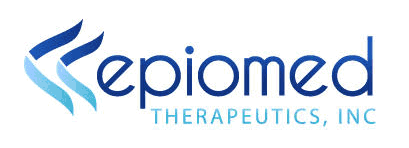预约演示
更新于:2026-01-29

Epiomed Therapeutics, Inc.
更新于:2026-01-29
概览
关联
100 项与 Epiomed Therapeutics, Inc. 相关的临床结果
登录后查看更多信息
0 项与 Epiomed Therapeutics, Inc. 相关的专利(医药)
登录后查看更多信息
2
项与 Epiomed Therapeutics, Inc. 相关的新闻(医药)2024-01-31
Nasa is helping with Defender’s development of DPI-386, as astronauts are particularly susceptible to motion sickness in space. Image credit: Shutterstock/Supamotionstock.com.
The FDA has decided to not approve Defender Pharmaceuticals’ intranasal scopolamine candidate for motion sickness, issuing a complete response letter (CRL) to the US-based company.
Defender’s drug, known as DPI-386, is indicated for the prevention of nausea and vomiting induced by motion in adults.
Defender’s CEO Barry I Feinberg said the company plans on scheduling a formal meeting with the FDA to discuss the issues raised and to create a plan going forward, in a 30 January press release.
DPI-386 is a nasal gel version of the antimuscarinic drug scopolamine, first approved by the FDA as a transdermal patch in 1979, according to the
drug’s label
. Currently, patches are placed behind the ear and work with high efficacy by depressing the parasympathetic nervous system.
The gel could be particularly
useful for astronauts
and military personnel who are frequently exposed to motion. Nasa joined forces with Epiomed Therapeutics to develop a fast-acting nasal spray version of scopolamine in 2012. According to the
St Louis Post-Dispatch
, Defender purchased Epiomed in 2014 and was founded the same year. Headquartered in St Louis, Missouri, the company has also worked with the United States Naval Medical Research Unit.
See Also:
Tyra Biosciences’ TYRA-300 gains FDA rare paediatric disease status
Revolo advances plans to tackle eosinophilic esophagitis with orphan drug tag
Defender’s formulation aims for rapid absorption to induce quicker onset. In a Phase III trial more than 500 participants, who usually get motion sick, had improved symptoms after being exposed to open sea conditions while using DPI-386. Subjects who received the nasal gel demonstrated lower incidences of vomiting and fewer requests for rescue medication compared to a placebo group. The incidence of moderate to severe nausea was also lower.
In a September 2023 statement announcing the new drug application (NDA) acceptance, Defender said results from five phase III trials were submitted as evidence. The NDA was assigned priority review status by the FDA at the request of the US Navy.
Feinberg added: “We remain confident that our intranasal scopolamine is a safe and effective therapy for the prevention of motion sickness, and we will work closely with the FDA to ensure that we can bring this innovative new product to the market.”
Defender is also exploring the use of DPI-386 in major depressive disorder (MDD) with suicide ideation, chemical exposure accidents, and virtual reality sickness.
In October 2023, Defender announced further collaborations with Nasa to study DPI-386 in Phase II trials to mitigate G-transition-induced motion sickness and enhance sensorimotor performance.
Scopolamine recently made the news beyond the healthcare sector after rising incidences of it being linked to criminal activity. In June 2023, the US Embassy in Colombia
highlighted
the sedative side effects of the drug are being increasingly used to target tourists in the country. In certain doses, the drug can cause unconsciousness for 24 hours or more.
Scopolamine was also the first drug to infamously garner the “truth serum” tag.

临床3期临床2期申请上市临床结果上市批准
2024-01-30
A nasal gel version of a drug that has been on the market since 1979 has been rejected by the FDA. Defender Pharmaceuticals will meet with the FDA to develop a plan to gain approval for the treatment.
A nasal gel version of the motion sickness drug scopolamine has failed to make the grade with the FDA. The U.S. regulator has sent a complete response letter (CRL) to Defender Pharmaceuticals, rejecting DPI-396 for the prevention of nausea and vomiting induced by motion.
Barry Feinberg, M.D., CEO of Defender, a privately held St. Louis company, said in a release that the firm will schedule a meeting with the FDA so it can “understand the issues raised in the CRL so we can develop and implement a comprehensive action plan.”
“We remain confident that our intranasal scopolamine is a safe and effective therapy,” Feinberg added.
In 2012, the NASA teamed with Irvine, California-based Epiomed Therapeutics to develop a nasal spray version of scopolamine. Astronauts often experience motion sickness in space. Two years later, Defender purchased Epiomed, according to the St. Louis Post-Dispatch.
Also working to develop the treatment has been the U.S. Naval Medical Research Unit. If Defender can gain approval of DPI-396, the company plans to make it available to the military first then offer it on the open market.
Novartis previously won an FDA approval for a scopolamine patch in 2012, according to a consumer pamphlet (PDF) posted online. The FDA first approved scopolamine in 1979, according to the drug's label.
The patch is administered behind the ear and is commonly used by people traveling through the air or at sea. It is also used to prevent postoperative nausea.
While effective for days, the treatment causes drowsiness. Defender’s formulation of intranasal scopolamine is a smaller, more concentrated dose designed for more rapid absorption.
It was found effective compared to placebo in a phase 3 study of more than 500 participants who were exposed to motion on an ocean trip. Those using DPI-396 were less likely to vomit, to have moderate to severe nausea or to request antihistamine rescue treatment.
The company and NASA also are conducting a phase 2 trial, recruiting astronauts to undergo motion simulation exercises, testing their ability to maintain their balance and execute motor skills like writing and other movements while avoiding nausea.
Defender has other potential uses in mind for DPI-396, such as combating depression and avoiding motion sickness when wearing virtual reality goggles.

临床3期上市批准临床2期并购临床结果
100 项与 Epiomed Therapeutics, Inc. 相关的药物交易
登录后查看更多信息
100 项与 Epiomed Therapeutics, Inc. 相关的转化医学
登录后查看更多信息
组织架构
使用我们的机构树数据加速您的研究。
登录
或

管线布局
2026年02月07日管线快照
管线布局中药物为当前组织机构及其子机构作为药物机构进行统计,早期临床1期并入临床1期,临床1/2期并入临床2期,临床2/3期并入临床3期
其他
2
登录后查看更多信息
药物交易
使用我们的药物交易数据加速您的研究。
登录
或

转化医学
使用我们的转化医学数据加速您的研究。
登录
或

营收
使用 Synapse 探索超过 36 万个组织的财务状况。
登录
或

科研基金(NIH)
访问超过 200 万项资助和基金信息,以提升您的研究之旅。
登录
或

投资
深入了解从初创企业到成熟企业的最新公司投资动态。
登录
或

融资
发掘融资趋势以验证和推进您的投资机会。
登录
或

生物医药百科问答
全新生物医药AI Agent 覆盖科研全链路,让突破性发现快人一步
立即开始免费试用!
智慧芽新药情报库是智慧芽专为生命科学人士构建的基于AI的创新药情报平台,助您全方位提升您的研发与决策效率。
立即开始数据试用!
智慧芽新药库数据也通过智慧芽数据服务平台,以API或者数据包形式对外开放,助您更加充分利用智慧芽新药情报信息。
生物序列数据库
生物药研发创新
免费使用
化学结构数据库
小分子化药研发创新
免费使用